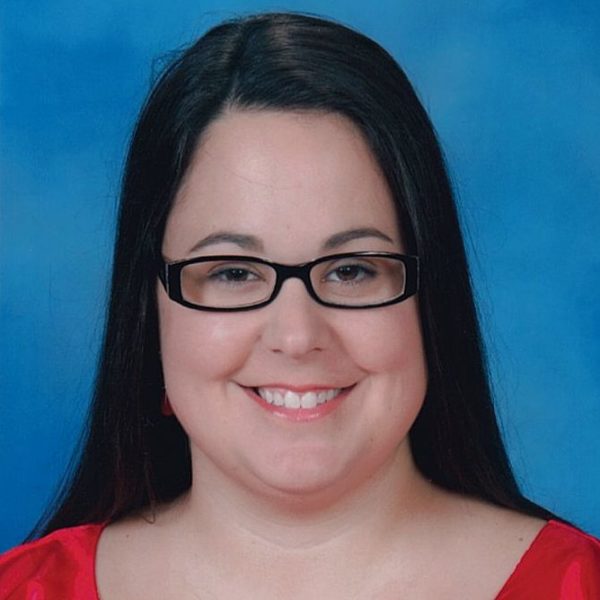
Image by Chuttersnap/Unsplash.
What a Middle School Pen Pal Program Taught Me About Our Differences
Editor’s note: This is the second in a series of essays about a middle school pen pal project. You can read the first essay, by Catherine Epstein here.
When I was in fifth grade, my teacher started a U.S. Army pen pal project, in which each of us exchanged letters with a soldier stationed overseas. Every month, I eagerly anticipated the next letter. My family and I were amazed that the busy soldier would take time to share his daily thoughts and feelings with an unknown young student. I specifically remember how special this letter exchange made me feel. My favorite memory was after his deployment was over. His family had a welcome home party for him, and I was invited to meet my pen pal face to face. The project influenced me as a student, as a person, and eventually as a teacher. For a long time, I’ve wanted to create the same rich experience for my own classroom.
Corresponding with a soldier overseas gave me insight into a life and perspective I couldn’t have imagined otherwise. As it turned out, the pen pal project I’ve taken on connects my students with people living right here in the U.S., but whose experiences and opinions sometimes feel just as foreign to them as the soldier’s experience did to me.
In the summer of 2017, I saw a post in a Facebook group from Catherine Epstein, a teacher in Boston hoping to connect with a classroom in a conservative region for a yearlong pen pal project. My small, rural, and predominantly conservative community in western Arkansas — where I grew up and where I teach now — felt like an ideal fit. I constantly strive to find new and exciting ways to engage my history classes, and although taking on a new project always requires significant time and energy, supporting a correspondence with students in such a politically different region immediately felt worthwhile. I felt that if I could get my students to write and share their thoughts and opinions with students across the political divide, important conversations might occur. That might in turn lead to empathy, understanding, and maybe even real friendships.
Catherine has written about the first half of the year, which was filled with discoveries, questions, and challenges. As we enter the ninth month, I sat down with my students to reflect on the project and its outcomes. Like them, I had no idea where this project would go. Every student mentioned that, at the beginning of the project, they worried that the Boston students might be hard to talk and relate to. They specifically wondered whether it would be difficult to discuss subjects like gender, race, and religion while not offending their reader.
As junior high schoolers who don’t closely follow the news, my students were also challenged to figure out exactly what their beliefs were on these topics and why they hold them. Many of my students did not think they would have strong enough opinions on these topics. Together, we discovered that even not having much of an opinion was important and interesting to explore. One example that stands out was the month we were writing about religion. Several of my students mentioned that they did not regularly attend a church and did not consider themselves religious. I told them to investigate that in their writing. During the politics-themed month, many of my junior high students mentioned that they did not regularly watch the news or keep up with politics. However, we quickly discovered that they did have opinions about certain politicians or political issues that they could share. This pen pal project has definitely made us teachers and our students more aware of the world outside of where we live.
Despite these concerns, I was amazed at how quickly my students bonded with their Boston pen pals. Within the first few letters, they began sharing life situations and goals that were intensely personal and enlightening. In her very first letter, my student Mae shared the following:

Her pen pal Nate, then responded equally personally:

I still don’t know what made our students feel so comfortable sharing such intimate and difficult details with each other, though many of them have expressed gratitude for the letters, since they create a separate, private space for them to talk about their lives. Letter after letter, each student poured out their personal situations and life updates. Due to this truth sharing, my students now consider these distant students as their close and trusted friends.
My students were also enamored with the idea of Boston, along with their pen pals’ project-based private school. A steady flow of questions came each month: “Mrs. Smith what’s a subway?” “Mrs. Smith, what’s a bat mitzvah?” My rural students were amazed at the amount of extra-curricular activities available to their urban pen pals. Each month, when the new crop of letters come in the mail, my students excitedly tear them open like it’s Christmas morning.
The cultural and racial differences were very evident to me and Catherine, but the students have never commented on them. One challenge my students faced was preferred pronoun usage. My students had never encountered someone who had those preferences. Beginning the project, I wondered if race or sexual orientation might become a conversation stopper. My students are white with little multicultural interactions, who found themselves writing to children of immigrants with many different racial backgrounds. Thus far I have never heard my students mention these differences. In fact, I believe these differences have added to the project and its overall impact. The students have discovered that these differences make each other special, interesting, and unique.
As a teacher, this project has accomplished more than I had ever dreamed. My students’ ability to empathize and converse with those from vastly different backgrounds has been astounding. And after reading their letters myself, I have come to understand my students on a much deeper and more personal level than I would have without this project. They’ve shown a maturity and ability to connect that I believe many adults would find hard to accomplish. The singular connections this project has created, I believe, will continue for years to come.
Looking ahead, we’re faced with many questions about how to continue the project. Do we continue with the same group? With a new set of students? Will the students want to connect with each other over social media — which we’ve prohibited them from doing throughout the year? How will these friendships affect our students over the next months, years, and into their adult lives?
Of course, the students don’t think that far ahead. In my classroom, the question I most often hear is:


